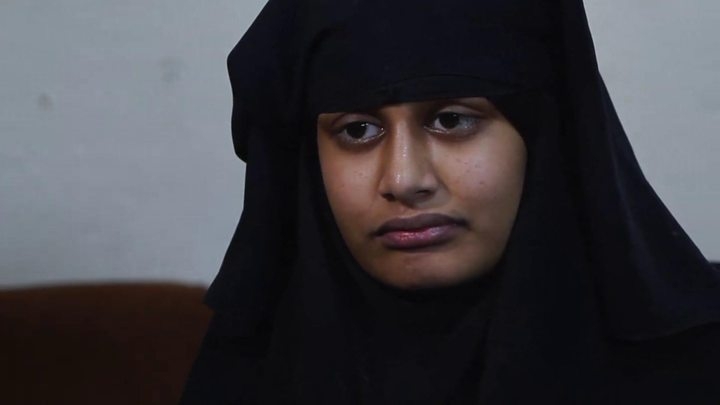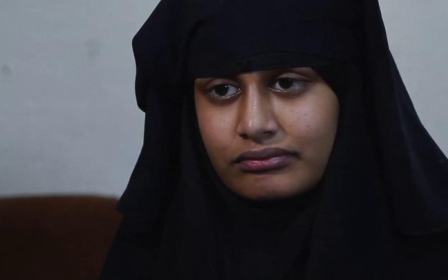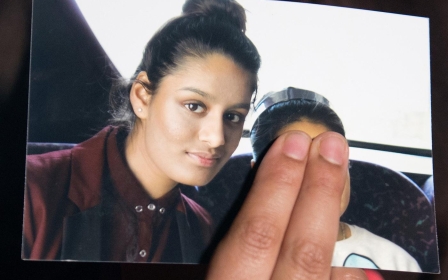Shamima Begum loses first appeal against UK citizenship removal

Shamima Begum, the British woman who at 15 travelled to Syria join the Islamic State group (IS), has lost the first stage of her appeal against the UK government's decision to revoke her citizenship.
The Special Immigration Appeals Commission (SIAC) ruled against Begum and said former UK Home Secretary Sajid Javid's decision to revoke her citizenship did not render her "stateless".
The SIAC ruled against Begum, now 20, on three grounds and said she could apply for Bangladeshi citizenship, where her parents are both originally from.
It also ruled that Javid did not expose Begum to human rights abuses by leaving her in the Kurdish-controlled camp in northern Syria she is currently detained in.
However, the ruling issued by Mrs Justice Elisabeth Laing, Mr Doron Blum and Mr Roger Golland acknowledged that Begum "cannot have an effective appeal on her current circumstances but does not follow that her appeal succeeds".
During the SIAC proceedings in 2019, Begum's lawyers argued that she could "face torture" and the death penalty if transferred to Iraq for trial or taken to Bangladesh.
Her lawyers also told the court in 2019 that there was no evidence that she had ever applied for Bangladeshi citizenship or visited the country.
Begum absconded to IS-held Syria in 2015, along with Kadiza Sultana and Amira Abase, two other London schoolgirls who are both believed to be dead.
Begum was stripped of her citizenship in 2019 after she was found in a detention camp for suspected IS members and their families by a journalist from the Times newspaper.
While held in captivity, her son Jarrah died three weeks after she gave birth to him. Prior to Jarrah's death, Begum also gave birth to two other children in Syria, who both also died.
Begum's case and the death of her son have cast scrutiny over the British government's policies towards UK nationals and their offspring stranded in Syria.
It is believed that Javid made his decision on the basis that Begum was eligible for Bangladeshi citizenship because of her parents' heritage.
Begum is among dozens of British nationals who have been stripped of citizenship because of security concerns surrounding the perceived threat posed by returnees from Syria.
'Hanged' if taken to Bangladesh
In 2018, judges at the SIAC ruled that the British government had wrongly determined that two British men of Bangladeshi descent were Bangladesh nationals and ordered their citizenship to be restored. The government is appealing those cases.
Bangladesh's nationality laws say that any individual who has parents with Bangladeshi citizenship is also automatically deemed entitled to citizenship.
The law, however, states that this entitlement expires if the individual has not claimed it before the age of 21.
Earlier this year, Bangladesh's foreign minister, Abul Kalam Abdul Momen, said that Begum could face capital punishment and be "hanged" if brought to his country.
Speaking to ITV News, Abdul Momen reaffirmed Dhaka's stance that Begum was not a Bangladeshi citizen.
Middle East Eye delivers independent and unrivalled coverage and analysis of the Middle East, North Africa and beyond. To learn more about republishing this content and the associated fees, please fill out this form. More about MEE can be found here.



